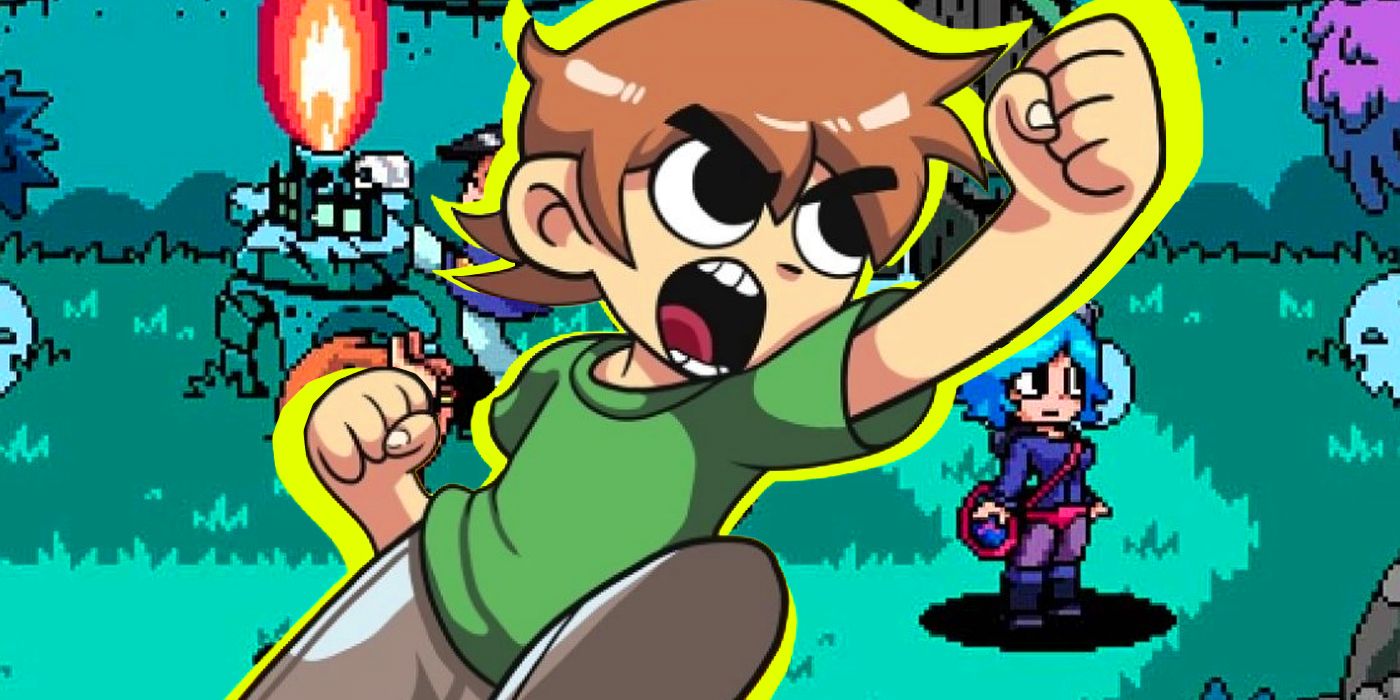In the wake of the release of Scott Pilgrim vs. The World: The Game: Complete Edition, it's worth looking back at a movement within video games which the original version of the title may have spawned. Like the film that it was released to tie into, Scott Pilgrim basked in references to classic video games, namely the 8-bit era.
Since then, several indie games have also taken visual, musical and gameplay cues from titles that are now over 30 years old. This manifests mainly in games on Steam and other electronic video game vendors that look straight out of the NES days! While this idea was definitely both nostalgic and creative initially, indie games like Scott Pilgrim becoming stuck in ripping off old-school titles has become trite in its own right. Here's a look at how Scott Pilgrim vs. The World: The Game may have had a hand in turning indie games into as big of an assembly line as mainstream titles.
Indie Overload
The game originally released back in 2010, still a few years before the Wii U, Playstation 4 and Xbox One launched. This generation of gaming was, even more than currently, defined by big-name franchises, annual releases and sequels. This could be seen in such games as the then still incredibly popular Halo series and Call of Duty. First-person shooters were bigger than ever, to the detriment of some other genres. Platformers had especially seen better days, with both 3d collectathons and 2d side-scrollers rarely developed. In fact, Nintendo seemed to be some of the only ones making the latter.
This made Scott Pilgrim, an entry in the even more moribund beat 'em up genre, such a breath of fresh air. The over-the-top, colorful romp was a sharp contrast to the greyed out, gritty shooting titles that dominated the gaming consciousness. Scott Pilgrim drew from and referenced old-school titles such as Super Mario Bros., Metroid, Mega Man and especially River City Ransom. Some of these franchises hadn't had classic entries in years, making the movie tie-in all the more special.
Since then, several other similarly retro games would release to a similar reception. Just a few months later, Super Meat Boy would also tackle the world of difficult classic platformers, quickly followed by other titles like Fez, Undertale and Shovel Knight. Like Scott Pilgrim, these recreated nostalgic memories of old-school sidescrollers, down to the digitized, pixelated graphics and chiptune soundtracks. Many saw these and other titles as a breath of fresh air among the sometimes samey mainstream video game industry, but unfortunately, indie titles would soon fall into their own rut.
When Nostalgia Fails
In today's indie gaming landscape, finding title's in the same vein as Scott Pilgrim is no more difficult than finding a Zelda title on a Nintendo console. Many of these games defer to the pixelated look of yesteryear, and what was once a charming and admirable design choice has become just as, if not far more trite than the realistic graphics the indie community was said to try to steer away from. To be fair, these graphical choices are also driven out of finances and are often a cheaper option. However, this goes to cement that these titles are cheap, quickly put together affairs made to generate easy cash on Steam. Many of these sometimes poorly made titles also claim to emulate how difficult older games were, not realizing that many of those titles' difficulty was inorganically derived from inexperienced programming in the '80s.
The type of pixelation also reflects this potential laziness. Almost all of these games imitate 8-bit titles of the NES era as if that was the only option outside of modern graphics. The 16-bit era and the improvements it brought to gaming are commonly overlooked, namely because drawing from this source would require more effort on the developers' part. Scott Pilgrim is guilty of this as well, as, despite its graphics more resembling 16-bit games, its sometimes grating chiptune soundtrack is clearly in the 8-bit category. This again adds to the sentiment that these titles are cheap nostalgia bait, banking more off of gamers' memories than off of being good in their own right. Scott Pilgrim vs. The World: The Game is itself still a fun title, but unfortunately, the indie trend that it headlined is no more creative than an endless supply of World War 2 shooters.



